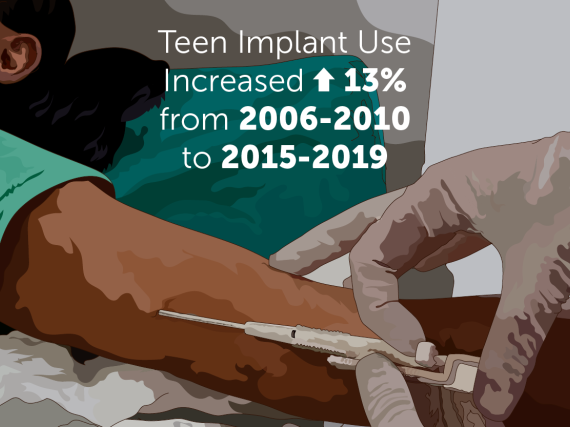Community College Students Face Barriers to Accessing Contraceptives
Colleges are invested in helping students stay in school and fulfilling their goals by completing their education. One of many ways community colleges can help students is by ensuring they have access to the birth control they need to reduce unplanned pregnancies and keep their educational goals on track. However, people in community colleges across the US are facing challenges accessing their birth control method of choice. According to a new study in Women’s Health Issues, women in community colleges in Oregon and California are concerned about the costs of contraceptives.
The cost of contraceptives is a barrier that needs to be addressed to protect students’ power to decide if and when they get pregnant. We know not all birth control methods are right for everyone all the time, so, ensuring affordable access to the full range of methods is important and needed, especially for those in community college who may face financial barriers.
The Women’s Health Issues study observed community college students and found that almost half of them were concerned about contraceptive costs. Although California and Oregon have policies that aim to make contraception more accessible, many people do not know they exist, and therefore do not know the full range of contraceptives are available to them. As the study authors note, community college students typically use contraceptives less than students attending 4-year colleges or universities—and this lack of awareness about what is available could contribute to that disparity.
According to the study findings, uninsured women, as well as women who are unsure of where to receive low-cost contraceptives, are the most likely to be concerned about the cost of contraceptives. Some insured women are unaware of the different contraceptives their insurance covers. These findings suggest the need for more information provided to young adults about their insurance regarding birth control methods, whether their insurance is private or publicly funded. Regardless of insurance status, community college students should have greater access to the full range of contraceptive methods and receive information on where affordable methods are available.
The authors suggest that community colleges could highlight programs such as Title X, connect students with coverage options (including Medicaid), and support students’ health insurance literacy. They can also provide education on how students can use these programs to access family planning services. Policies and programs that address contraceptive costs are not sufficient on their own if people do not know about them.
Power To Decide advocates for the Title X Family Planning Program, one of the publicly funded programs mentioned by the study authors. Title X-supported health centers provide contraceptives, health education, and other services to people with low-incomes. Title X is important for accessibility to reach all people, including community college students. If you are attending or employed at a community college, you can encourage your school to establish a partnership with local Title X clinics and educate students through campus outreach. You can also help ensure Title X has the resources it needs to serve more people in need by contacting your members of Congress today.
Regardless of insurance and income status all students should have both knowledge about and easy access to affordable contraceptives so that they are able to decide if and when they want to become pregnant.
You can visit Power To Decide’s College Campus Sexual Health initiative to learn more about sexual health care on campuses across the US.
Sitara Sayyed is the Public Policy Intern at Power to Decide where she assists the Public Policy team with federal policy issues. She attends University of Maryland where she studies Public Policy.


